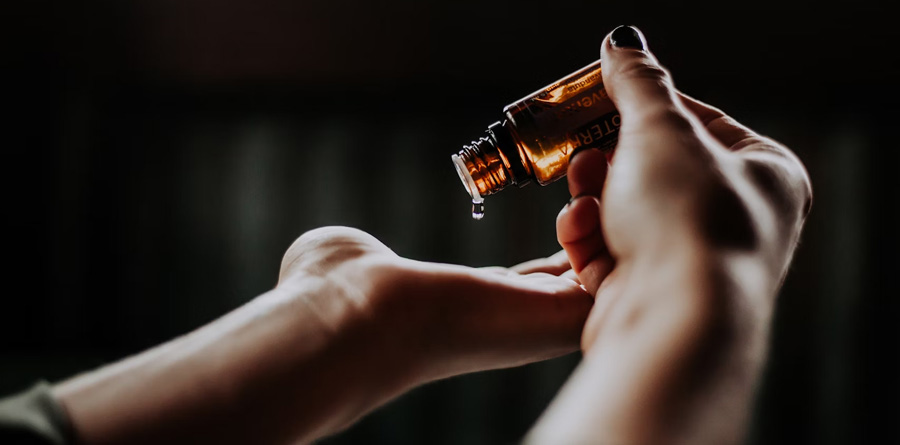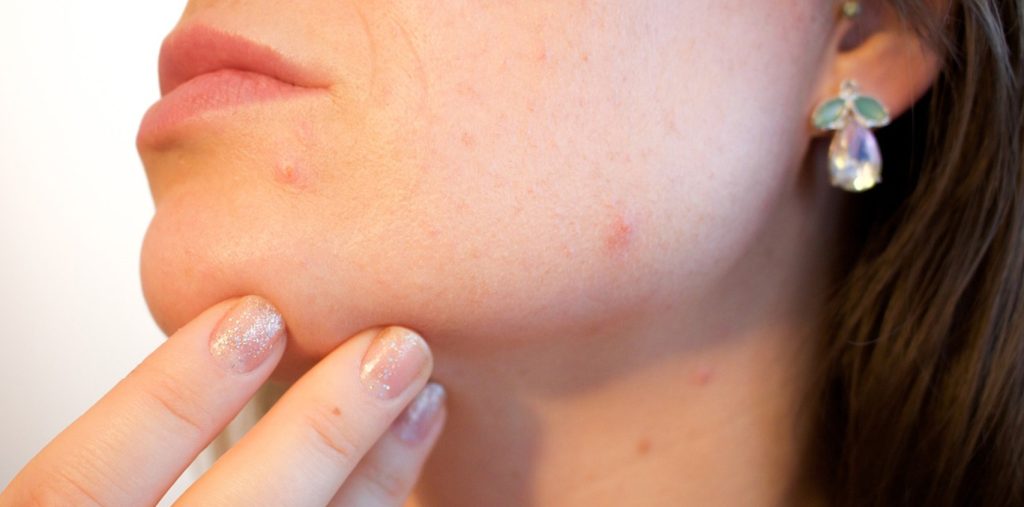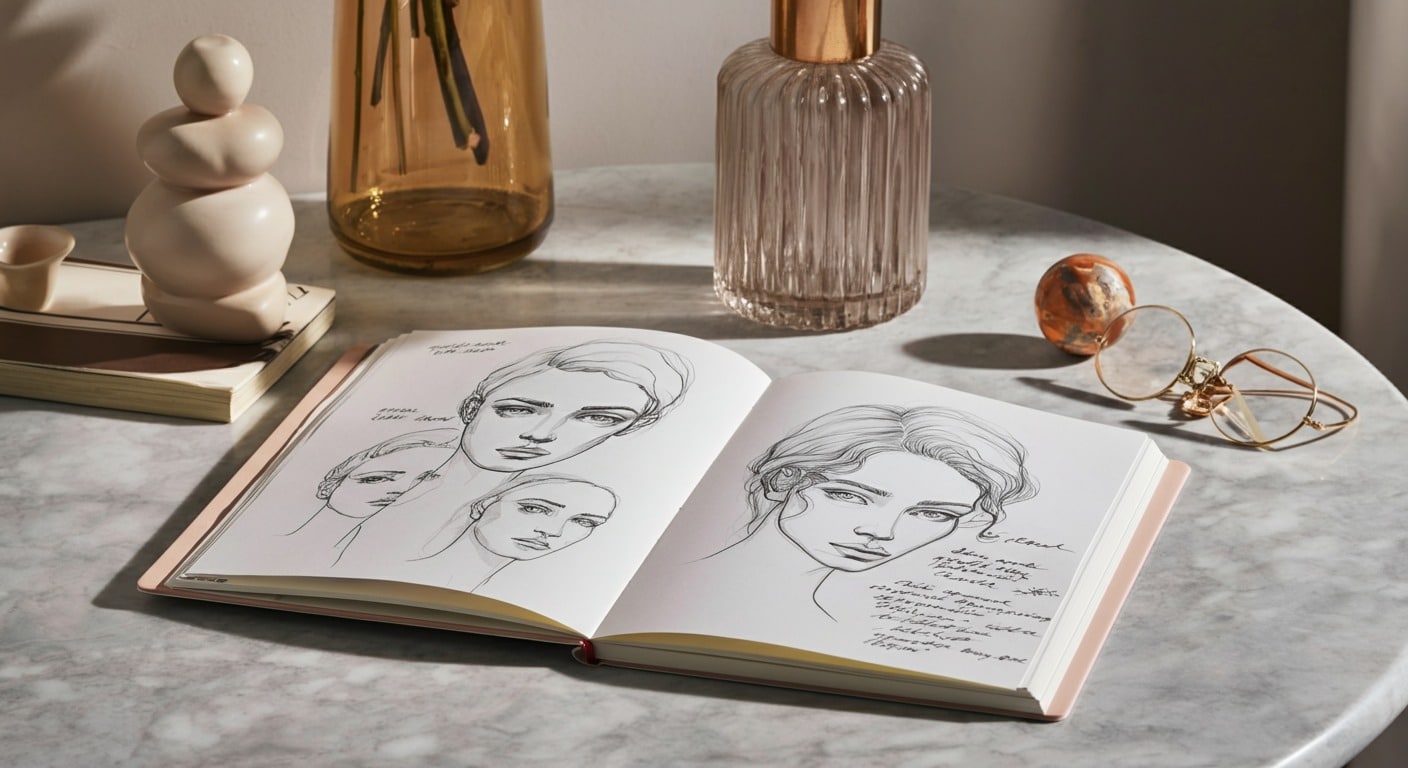Got a pimple popping just before an important evening out? In those moments of panic, toothpaste seems to be the miracle solution everyone advises. But is it really a good idea to apply it to your skin? If you’re wondering whether this homemade trick is effective or risky, you’ve come to the right place. We untangle the real from the fake to help you make the right choices for your skin.
Is toothpaste effective against pimples?
Toothpaste is often presented as a home remedy for pimples. But is it really an effective solution? Let’s take a closer look.
Why is toothpaste used to treat pimples?
Toothpaste contains ingredients such as baking soda, hydrogen peroxide and menthol. These components have disinfectant properties and can dry out oily areas of the skin. This is why toothpaste is sometimes applied directly to pimples.
In theory, these substances could reduceinflammation and diminish the appearance of a pimple. However, their use on the skin is not without risk.
The risks of applying toothpaste to the skin
Although toothpaste looks promising, it’s not designed to be used as a cosmetic treatment. Here are some of the problems it can cause:
- Irritation: Components such as menthol or fluorine may cause redness and itching.
- Dryness: The drying effect of toothpaste can aggravate the situation, especially if the skin is already sensitive.
- Allergic reactions: Some ingredients may cause unexpected allergies.
These side effects show that using toothpaste on pimples isn’t always a good idea, especially over the long term.
Safer, more efficient alternatives
If you’re looking to treat your pimples, there are more suitable options. Here are a few examples:
| Product | Action |
|---|---|
| Benzoyl peroxide | Reduces acne-causing bacteria. |
| Salicylic acid | Exfoliates skin and unclogs pores. |
| Essential oils (such as tea tree oil) | Natural antibacterial properties. |
These products are designed to treatacne and are generally better tolerated by the skin.
When should you see a dermatologist?
If your pimples persist or worsen, it’s best to consult a dermatology specialist. A dermatologist will be able to suggest a treatment suited to your skin type and the severity of your acne.
In summary, while toothpaste may seem like a quick fix, it’s far from the best choice for caring for your skin.
The risks of putting toothpaste on a pimple
Many people use toothpaste as a home remedy to treat pimples. But this practice can cause more harm than good. Although certain ingredients like baking soda or menthol have drying properties, toothpaste is not designed to be applied to the skin.
1. Irritation and redness
Toothpaste contains aggressive substances such as fluoride and whitening agents. Suitable for cleaning teeth, these ingredients can cause severe irritation when applied to the skin. As a result, your pimple may become even redder and more painful.
2. Skin imbalance
The skin has a natural balance which it is important to preserve. Applying toothpaste can disrupt this mechanism by over-drying the affected area. This can lead to increased sebum production, which can worsenacne.
3. Risk of allergies
Certain ingredients in toothpaste, such as fragrances or antibacterial agents, can cause allergic reactions. This can result in itching, red patches or even severe inflammation.
4. No suitable treatment
Toothpaste is not a product designed to treat pimples. Unlike dermatological products such as benzoyl peroxide or salicylic acid, it does not target the bacteria responsible foracne. Its effectiveness is therefore limited and unproven.
5. Risk of chemical burns
Certain types of toothpaste, especially those containing baking soda or whitening agents, can cause chemical burns on the skin. This can leave scars or worsen the condition of your skin.
What to do instead?
If you’re looking for an effective solution to treat a pimple, choose products designed for this purpose. For example:
- Benzoyl peroxide, which helps reduce bacteria andinflammation.
- Salicylic acid, which gently exfoliates and unclogs pores.
- A non-comedogenic moisturizer to soothe the skin.
Consult a dermatology specialist for appropriate treatment if your pimples persist.
What alternatives do we offer to get rid of pimples?
While toothpaste is often touted as a miracle cure for pimples, it’s neither recommended nor effective in the long term. At Entourage, we prefer professional, customized solutions, combining state-of-the-art treatments and specialized products, for healthy, luminous skin.
Our specialized treatments and care
- BBL Acne Laser This advanced technology targets acne-causing bacteria and reduces inflammation for clearer, more even skin.
- Waterpeel A gentle yet effective treatment that exfoliates, moisturizes and deeply purifies to unclog pores and eliminate impurities.
- Soin Biologique Recherche with Remodeling Face a combination of customized treatments and electrical stimulation to improve skin condition, reduce imperfections and even out skin tone.
Our products to complete your routine
To prolong the effects of treatments, Entourage in Lausanne offers a selection of top-of-the-range products to treat pimples and improve skin quality:
- Blemish + Age Defense by SkinCeuticals: a targeted serum that fights imperfections while attenuating the first signs of aging.
- Lotion P50 from Biologique Recherche: a must-have for exfoliating, rebalancing and deeply regenerating skin.
- Biologique Recherche Dermopurifying Cream: ideal for soothing redness and reducing imperfections.
- SkinCeuticals Retinol: a powerful active ingredient that stimulates cell renewal and smoothes skin for a visibly improved complexion.
Personalized support at Entourage
Every skin is unique, and our specialists offer you a personalized analysis to determine the treatments and products best suited to your needs. With an expert approach and targeted solutions, we help you regain clear, healthy, radiant skin.
What are the natural alternatives to toothpaste?

Essential oils
Essential oils are a popular option for treating pimples. They have antibacterial and anti-inflammatory properties that help reduce inflammation and cleanse the skin. Among the most effective are:
- Tea tree essential oil: Known for its ability to disinfect and reduce redness.
To apply, mix a drop of essential oil with a vegetable oil such as jojoba oil. Then apply directly to the pimple with a cotton bud. To avoid irritation, never use these oils pure.
Aloe vera
Aloe vera moisturizes pimples , but has no effect on making them disappear. This natural gel is known for its soothing, moisturizing and healing properties. It helps calm inflammation and accelerate the healing of blemishes.
To use it, follow these simple steps:
- Cut analoe vera leaf and extract the gel.
- Apply this gel directly to pimples.
- Leave on overnight for optimum effect.
In addition to its benefits on pimples,aloe vera helps prevent scarring and maintain healthy skin. It’s a gentle, effective alternative for those looking for a natural remedy.
How can I prevent the appearance of pimples on a daily basis?

Preventing pimples requires a simple but effective routine. Good hygiene and appropriate skin care are your best allies. Here are a few practical tips to limit the appearance of pimples.
Cleanse your skin regularly
Daily cleansing is essential to remove bacteria, sebum and impurities. Use a gentle cleansing gel or foam, adapted to your skin type. Avoid overly aggressive products that may cause irritation.
In the evening, remove your make-up carefully to let your skin breathe. Even if you don’t wear make-up, cleansing is necessary to remove residues of pollution and perspiration.
Moisturize without clogging pores
Well-moisturized skin is healthy skin. Choose a light, non-comedogenic moisturizing cream that won’t clog pores. This helps limit excessive sebum production, often responsible for pimples.
Adopt a balanced diet
What you eat can have an impact on your skin. Reduce fatty, sugary or processed foods, which can aggravateacne. Choose fruits, vegetables and foods rich in zinc and vitamins, such as nuts and oily fish.
Avoid touching her face
Our hands carry bacteria all day long. By touching your face, you risk transferring these bacteria to your skin, which can lead to inflammation and pimples. Try to limit this reflex.
Change sheets and towels regularly
Sheets and towels accumulate impurities and bacteria. Change them at least once a week to avoid aggravating your skin problems.
Avoid irritating products
Some cosmetic products contain harsh ingredients such as alcohol or synthetic fragrances. These ingredients can cause irritation and promote the appearance of pimples. Choose gentle products formulated for sensitive skin.
Protecting your skin from the sun
Excessive exposure to the sun can thicken skin and block pores. Use a non-comedogenic sun cream to protect yourself while avoiding aggravating your acne.
Consult a dermatologist if necessary
If, despite your best efforts, the pimples persist, it may be worth consulting a dermatology specialist. He or she can recommend a suitable treatment, such as benzoyl peroxide creams or other specific solutions.





